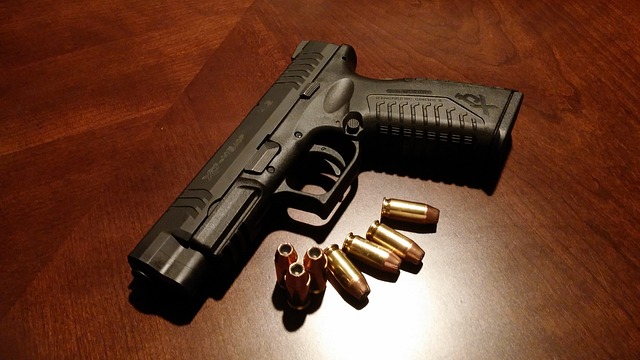
Gun Transfers Following Death or Disability
The recently passed new Illinois Trust Code. covers ownership transfers of guns upon disability or death.
Gun Ownership upon Disability
With the new statute, gun ownership upon disability is fraught with potential issues. Even if you currently possess a FOID card, you may become ineligible to possess your guns if you are:
- Prohibited from possessing a gun under any state or federal law;
- Addicted to narcotics;
- Have been a patient in a mental health facility in the past five years;
- Intellectually disabled;
- Adjudicated as a mentally disabled person;
- Involuntarily admitted into a mental health facility; or
- Diagnosed with a psychological condition that poses a clear and present danger to yourself, any other person, or persons in the community.
However, there is a difference between needing help to pay bills and being mentally impaired to the point where a person’s possession of a firearm violates the Gun Control Act.
As an added concern, a caretaker may face potential liability issues if a disabled person shoots someone, or if he or she commits suicide with a gun in the home. On the other hand, as important as concerns about possible liability and safety issues are, these concerns must be balanced with the senior’s right to self-defense.
In conclusion, to avoid unintended consequences following a disability adjudication:
- Set up a revocable grantor Living Trust or a Gun Trust,
- Create a Power of Attorney as part of your Living Trust estate plan to authorize another person to manage your affairs upon your disability without the necessity of court intervention.
Gun Transfers upon Death
After a gun owner dies, the executor of the estate, or preferably the trustee of his Living Trust, is tasked with the responsibility of legally transferring the gun to his or her chosen beneficiaries. However, if there is no estate plan, the surviving heirs at law are determined by Probate Court.
So what do you do now? Above all, start your estate plan. However, as an essential part of that plan, determine the ownership of your firearms after your death. Your trustee can distribute them to a licensed gun dealer. However, any chosen beneficiaries must have a valid FOID card in the state in which they reside.
If the beneficiary does not have a FOID card, the law provides for a sixty (60) day grace period. Certainly, do not put your trustee or your beneficiary in that position. For instance, it will delay the distribution of your estate and be a burden on your beneficiary during an already difficult time. Moreover, during those 60 days, the statute does not provide an exemption for your trustee who has possession of the firearms. As a result, the trustee is now subject to an immediate FOID requirement.
If firearms are an asset of the estate, the administrator will need to comply with a myriad of federal, state, and even local ordinances regarding possession, storage, transportation, and transfer of ownership. In addition, federal firearms laws always apply to possession, transport, and transfer. State and local ordinances may have more rigorous requirements than federal regulations.
Gun Record-Keeping Requirements
Finally, understanding recordkeeping requirements are crucial. In 2014, 720 ILCS 5/24-3(A) (k)(1), was amended. The statute now requires that, in a person-to-person transfer of a gun, the transferor has the responsibility of verifying the existence of the transferee’s FOID card and that it has not been invalidated or revoked. Also, the transferor must keep a record of the transfer for a minimum of ten years. The record must include the date of the transfer, the name, and address of the transferee, the serial number of the firearm and a description of the firearm. There is nothing in this statute that exempts estate administrators/trustees from this requirement.
Living Trusts
At the end of your life, or incapacitation, if you have property or bank accounts in your name, they are at risk of Probate, as are the guns discussed above.
- A Will must be filed in Probate Court. The rule is no one can legally sign your name. Therefore, at your death, or incapacity, all assets in your name are subject to the full probate process, which averages 18 months and is costly.
- Living Trust completely avoids probate.
- A Living Trust estate plan includes both Health Care and Financial Power of Attorney documents and a Last Will and Testament for guardianship of minor children and to “pour over” any assets still in your name at your death, out of probate.
- Your life insurance policies and deferred compensation accounts can name your Living Trust as beneficiary, subject to essential tax considerations.
*Illinois State Bar Association Trusts and Estates section; Mellissa Maye.
Contact us today for further information or visit Tuohy Law Offices now.

LinkedIn
TomTuohy.com
312-559-8400
820 West Jackson Boulevard
Chicago, Illinois, 60607
This blog entry created for information and planning purposes. Therefore, it is not legal advice. Please do not use this blog as legal advice, which turns on specific facts, as well as laws in specific jurisdictions. No reader of this blog should act or refrain from acting on the basis of any information included in, or accessible through, this blog without seeking the appropriate legal or other professional advice on the particular facts and circumstances at issue from a lawyer licensed in the reader’s state, country or other appropriate licensing jurisdiction
Divorce, Blended Families and Your Living Trust


